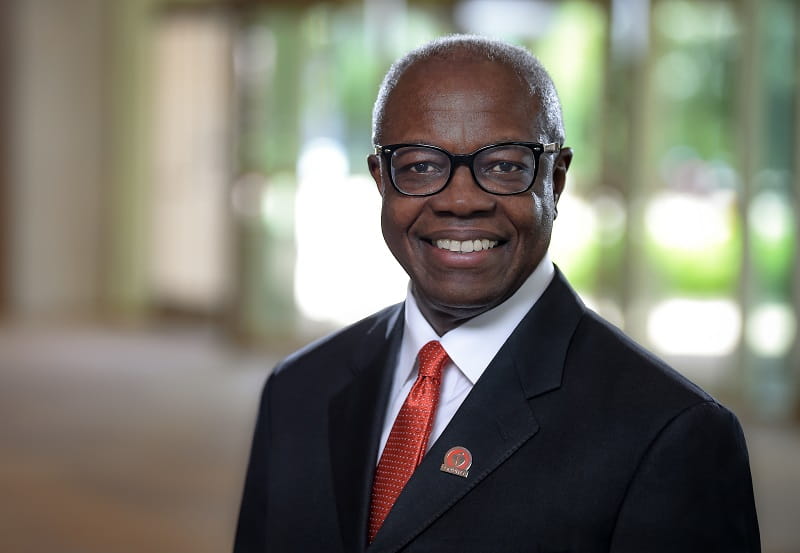Cardiologist, scientist and educator is a triple threat
By American Heart Association News

Even on a golf course – decked out in knickers, cardigan and matching cap – Dr. Ivor J. Benjamin is a classic.
"When I met him over two decades ago, I was immediately impressed by his engaging personality, compassion and old-school elegance," said Dr. Mark A. Creager, past president of the American Heart Association, director of the Heart and Vascular Center at Dartmouth-Hitchcock Medical Center and professor of medicine at the Geisel School of Medicine at Dartmouth in New Hampshire.
"He's a consummate gentleman, with his eloquent way of speaking and his dapper sense of style. The nicest guy you'll ever meet."
But beneath Benjamin's refined exterior, he's bold and brilliant – a "triple threat" as a clinical cardiologist, scientist and educator, Creager said.
Benjamin's one-year term as AHA president ends July 1, culminating an unprecedented period when African Americans have led six major health care organizations, including the American Medical Association, National Medical Association, National Heart, Lung, and Blood Institute, American Diabetes Association and Association of Black Cardiologists.
Like his tenure as AHA president, Benjamin's 36-year professional career has been trailblazing, helping increase the understanding of the molecular underpinnings of cardiac responses to stress. He's followed in the footsteps of his great-uncle, Dr. James Henry Murrell, a Guyana native who reportedly performed the first blood transfusion on Africa's Gold Coast in the 1920s.
Benjamin has also impacted the careers of young scientists he instructs and mentors as director of the Cardiovascular Center and professor of medicine at the Medical College of Wisconsin in Milwaukee.
Before his presidency, Benjamin:
- Helped organize the AHA's Symposium of the Council on Basic Cardiovascular Sciences.
- Expanded clinical opportunities for women, minorities and undergraduates as chair of the Research Committee.
- Chaired the Scientific Publishing and International Committees and helped establish the Journal of the American Heart Association.
"His leadership generated such buzz that I encouraged him to put his hat in the ring for national board president," Creager said.
Benjamin was humbly flattered.
"I never imagined, in my wildest dreams, that I would be president," he said.
His faith was foundational to his involvement in the AHA – and symbolic. During his cardiology fellowship in the 1980s, his former University of Chicago mentor, Dr. Frank Douglas, introduced him to the AHA's Church-Based Hypertension Program. It resonated with him as a native of Georgetown, Guyana, where community-based health care systems are helping stem the tide of chronic and communicable diseases.
"I was immediately impressed with the synergy between staff and volunteers to promote impactful educational programs in inner city neighborhoods," he said.
As president, Benjamin helped establish the AHA-Allen Initiative in Brain Health and Cognitive Impairment, a partnership between the AHA and The Paul G. Allen Frontiers Group. The initiative has committed more than $43 million to study mechanisms that could help prevent, diagnose and treat age-related cognitive impairment.
Under his charge, the AHA also created the Social Impact Fund to invest in communities in which social determinants of health – conditions where people are born, grow, live, work and age – threaten well-being and longevity.
The AHA has formed other partnerships to advance precision medicine, health technology, drug discovery and health equity.
"I'm incredibly excited about how the association has embraced innovation and health equity," he said. "The future is bright."
During the AHA's recent annual Gold Heart Banquet, Creager thanked Benjamin's family – wife Carol, daughter Charis and sons Lawrence and Alexander – for sharing "this great man."
And as he called Benjamin to the stage to give his final speech as president, Creager said to his longtime friend and colleague, "We will continue what you started, as we remember the rallying point of your illustrious presidency – 'The care of the future is ours!'"
If you have questions or comments about this story, please email [email protected].





